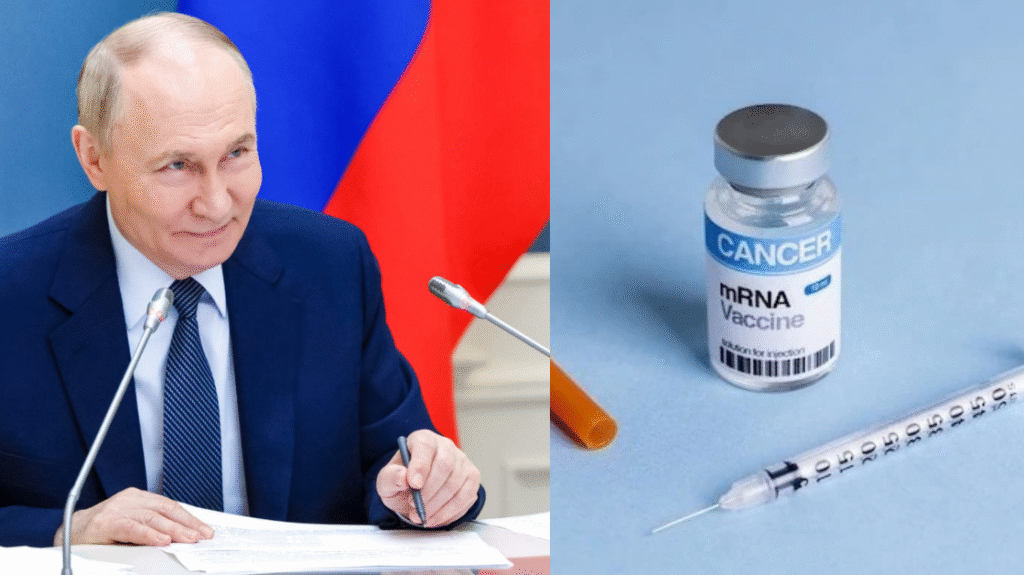Enteromix Emerges: A Breakthrough in Cancer Immunotherapy
The Enteromix cancer vaccine, an mRNA-based therapeutic developed by Russia, has made global headlines after demonstrating 100% efficacy and safety in early clinical trials, marking a potential turning point in cancer treatment. The vaccine, targeting colonic tumors among others, represents a highly personalized immunotherapy that educates the body’s own defenses to eliminate malignant cells.
Clinical Success: Immune Activation and Tumor Shrinkage
According to reports, Enteromix not only activated a complete immune response but also delivered 60–80% regression or halted progression of tumors, with no severe side effects observed among participants. Developed through collaboration between Russia’s National Medical Research Radiological Centre and the Engelhardt Institute of Molecular Biology, the vaccine targets cancers such as colorectal carcinoma and is poised for broader clinical validation.
Novelties Behind Enteromix: Personalized mRNA Strategy
At its core, Enteromix uses cutting-edge mRNA technology—similar to platforms used in COVID-19 vaccines—to create a completely personalized vaccine. The formulation is matched to each patient’s tumor genetics, an approach optimized by advanced mutation-profiling algorithms. As a result, immunomodulation becomes more precise, and cell toxicity is minimized.
Legal and Regulatory Stakes
Russia’s Federal Medical and Biological Agency (FMBA) has declared Enteromix “ready for clinical use”, positioning it for rapid regulatory review and potential approval. If cleared, Enteromix could become the world’s first personalized, oncolytic mRNA cancer vaccine to reach the market.
Globally, regulatory bodies will closely observe how this unfolds—particularly regarding:
- Approval protocols for personalized biotech therapies.
- Ethical safeguards for trial participants.
- Intellectual property frameworks for novel mRNA platforms.
- Cross-border trial standards, as nations weigh the vaccine’s applicability to their own health systems.
Expert Caution amid Headlines
While early results are promising, oncology experts urge caution. A 100% efficacy claim in a Phase I trial involving 48 volunteers emphasizes safety and immune response, but not long-term survival outcomes. Key questions remain regarding:
- Trial methodology and sample size.
- Duration of tumor suppression.
- Peer-reviewed publication of results.
Until rigorous phase II and III data are public, global medical communities remain cautiously optimistic.
Legal-Policy Perspective for India & Beyond
From a legal viewpoint—especially in jurisdictions like India—Enteromix raises pivotal regulatory and policy considerations:
| Area | Implication |
|---|---|
| Drug Approval Laws | Need for agile frameworks to assess personalized mRNA therapies. |
| Patent Systems | Handling proprietary genetic-vaccine platforms. |
| Safety Protocols | Regulatory standards for immunotherapy and emergency use. |
| Global Access | Fair public access in low-resource settings, pricing equity. |
Indian regulators and legal practitioners will particularly watch how pharmacovigilance, clinical ethics, and compassionate use policies evolve around such novel immunotherapies.
Conclusion
Enteromix, Russia’s pioneering mRNA-based cancer vaccine, stands at the frontier of personalized oncology. Its early success—marked by immune activation, tumor regression, and safety—represents a hope for effective, targeted cancer immunotherapy.
However, translation from clinical promise to legal and medical reality depends on rigorous trial validation, regulatory approval, and equitable access. If successfully navigated, Enteromix could usher in a new era of cancer treatment—one where legal frameworks adapt swiftly to embrace scientific breakthroughs.
To read more Indian Laws and news, visit Legal Guide India



